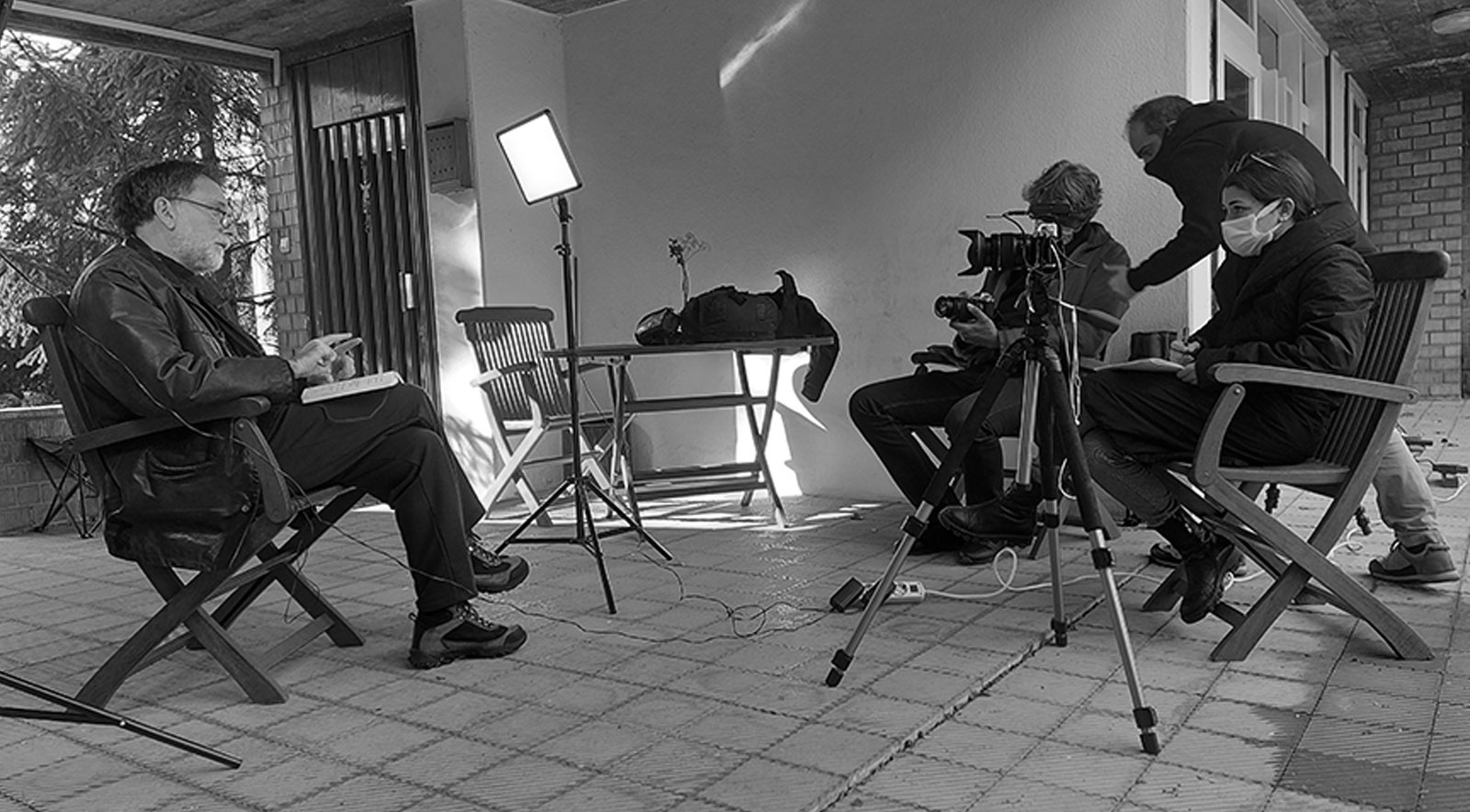
In early February a 7.8 earthquake struck southeastern Turkey and northwestern Syria, causing more than 58,000 deaths. In one of the biggest natural disasters in Turkey’s history, 1.9 million people lost their homes and are now forced to live in temporary shelters, and 26 million people in both countries were left in need of humanitarian assistance according to WHO statistics. Şükrü Oktay Kılıç of Fayn was one of the many reporters who travelled through the snow and sub-zero temperatures to report on the disaster.
“It was worse than a war zone, even according to experienced journalists who are used to covering wars,” he recalls. “The scale of destruction was unprecedented; people were stuck under the rubble and, for the first two days, help did not arrive as the government was paralyzed.
He describes how covering the earthquake was traumatic not only because of the immediate and extensive damage, but also because the survivors were angry and frustrated at the lack of accountability for those who should have helped. “Turkey is a very earthquake-prone region; the last big one was in 1999, and we knew it would happen again. Yet, the government had no emergency plan, and there is no transparency in the rebuilding process.”
In conversation with EED, Oktay reaffirms Fayn’s commitment to continue reporting on the regions affected by the earthquake, even as the news cycle is moving on and focusing on other topics. “Since the beginning, our editorial mission has been to hold the power to account and to amplify the voices of youth, minorities, and women, telling stories from their perspectives.”
Originally started as a production company, shooting high-quality documentaries and video explainers for Turkish and international media outlets, in October 2022 Fayn also launched an Instagram magazine. The objective was to provide more in-depth coverage and analysis of current news. The account quickly grew, reaching over 100,000 followers in only five months, making Fayn one of the most impactful and fastest-growing media in Turkey.
“We wanted to make complicated news more ‘digestible’ and provide an alternative to government-controlled mainstream media,” explains Oktay, “We decided to use Instagram because there was a growing demand for news among its users. There was an information gap to be filled. Also, it’s a highly visual platform, which allows us to stand out with our high-quality, creative, and engaging stories.”
As expected on Instagram, 55 percent of Fayn’s audience is aged 18 to 34, a category usually underrepresented in Turkish media. “Young people didn’t have media that they could call ‘theirs’, most media in Turkey is made by and for old people.”
Fayn does not focus on breaking news, but on more in-depth coverage, explaining to the public how specific events can impact their life, and on constructive journalism, suggesting solutions to collective problems. When the earthquake struck, not only did they report from the ground but they also encouraged people to donate to earthquake relief funds through a series of posts in multiple languages that were widely shared in Turkey and abroad. The English version of the post went viral, receiving half a million likes.
Despite Fayn’s success, Oktay makes no mystery about the challenges of working as a journalist in Turkey. “Journalism is hardly a job here, you cannot support yourself with it. And political pressure towards journalists is getting worse and worse.”
He goes on to explain how the general public’s trust in journalists is very low, due to a very polarised environment that favours the publication of biased, low-quality reporting. “But we’re getting positive reactions to our content, people are now realising that quality journalism is possible. Our social media-first approach to journalism is still new in Turkish media, and people are interested in it.”
The team uses the comment section below Fayn’s posts to create a community, encouraging people to talk while banning those who leave racist or aggressive comments. “When you manage to keep a space healthy and respectful, people will want to talk, and they leave many inspiring and insightful comments,” says Oktay.
In parallel with journalism, the Fayn team has continued its work as a production company, investing part of the revenue in their editorial operations. An EED grant allowed them to hire additional newsroom staff who could devote themselves to developing journalistic content full-time. “Financial sustainability is the biggest challenge for independent media in Turkey. That’s why we are looking at launching a news website supported by readers’ subscriptions in the future.”
Right now, Fayn’s biggest focus is covering the elections, which will take place on 14 May. “This will be a crucial election for Turkey, as it will decide whether we will keep a presidential system or go back to a parliamentary one. This is why we want to give people a platform where they can get reliable news about the elections. The young people that follow us are the age group with the most potential to decide the elections’ outcome,” explains Oktay.
The team released video profiles on each candidate and political parties, discussing their electoral promises and where they stand on topics ranging from economics to minority rights. They also have partnerships with other new media initiatives, such as Voys, Teyit and Referandom – many of them former or current EED partners.
Oktay is cautiously optimistic about the election results: “Turkey has the potential to send a wave of hope in the region. But as independent media, we remain committed to holding the government accountable, even if it is a different one, and to pushing politicians to create a healthy media environment in our country.”
This article reflects the views of the grantees featured and does not necessarily represent the official opinion of the EED.